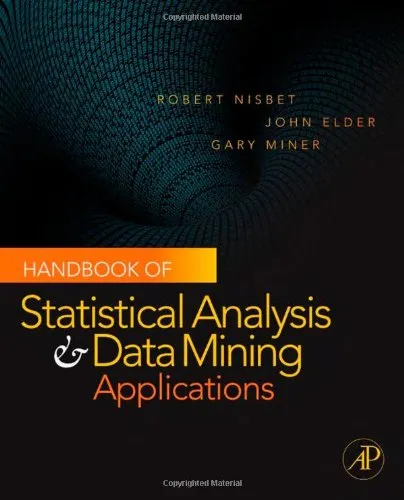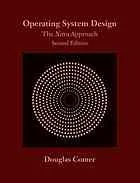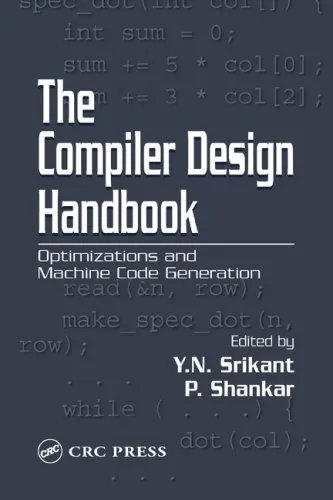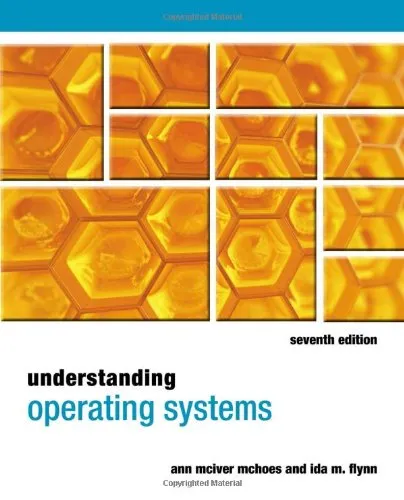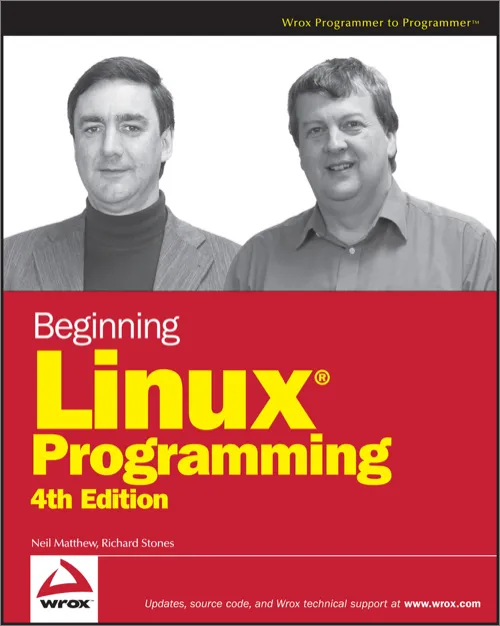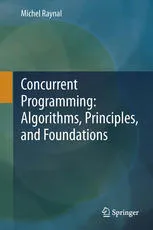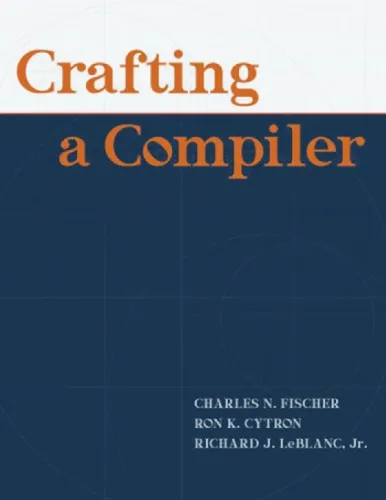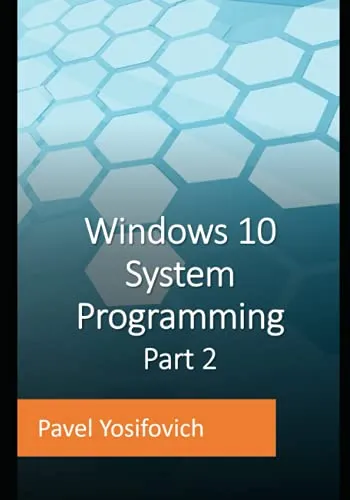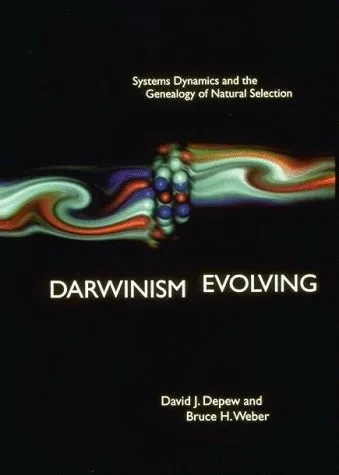Compilers Principles Techniques And Tools
4.0
بر اساس نظر کاربران

شما میتونید سوالاتتون در باره کتاب رو از هوش مصنوعیش بعد از ورود بپرسید
هر دانلود یا پرسش از هوش مصنوعی 2 امتیاز لازم دارد، برای بدست آوردن امتیاز رایگان، به صفحه ی راهنمای امتیازات سر بزنید و یک سری کار ارزشمند انجام بدینکتاب های مرتبط:
معرفی کتاب "Compilers Principles Techniques And Tools"
کتاب "Compilers Principles Techniques And Tools" که معمولاً با نام "اژدهای قرمز" شناخته میشود، یکی از جامعترین منابع در زمینهی کامپایلرها است. این کتاب توسط آلفرد وی. اهُو، راوی سثی، و جفری دی. اولمن نوشته شده است و به عنوان یکی از کتب مرجع در این حوزه برای دانشجویان و متخصصان محسوب میشود.
خلاصهای از کتاب
کتاب "Compilers" یک دیدگاه عمیق از مراحل مختلف توسعه کامپایلرها ارائه میدهد، از تحلیل لغوی گرفته تا تولید کد و بهینهسازی. در هر فصل، تکنیکها و الگوریتمهایی به تفصیل مورد بررسی قرار میگیرند که به ساختاردهی و بهینهسازی برنامههای نرمافزاری کمک میکنند. این کتاب با معرفی مفاهیم اساسی آغاز میشود و سپس به سمت موضوعات پیشرفتهتر مانند پیادهسازی زبانهای برنامهنویسی و Sectional Evaluation حرکت میکند.
نکات کلیدی
- توضیح ساختار و معماری کامپایلرها و اهمیت هر بخش در فرآیند ترجمه زبانهای برنامهنویسی.
- بررسی دقیق الگوریتمهای تحلیل لغوی، تحلیل نحوی و تحلیل معنایی.
- بهرهگیری از تکنیکهای بهینهسازی کد که باعث افزایش کارایی و عملکرد برنامهها میشود.
- مفاهیم مرتبط با تولید کد برای معماریهای مختلف و چالشهای مربوط به آن.
جملات معروف از کتاب
"تحولات در کامپایلرها بازتابی از پیچیدگیها و قدرت زبانهای برنامهنویسی هستند."
"تحلیل و بهینهسازی کد، هنر ایجاد نرمافزاری است که فراتر از کد منبع، کارآمد و قوی باشد."
چرا این کتاب اهمیت دارد؟
کتاب "Compilers Principles Techniques And Tools" به دلیل جامعیت و دقت در تحلیل فرآیندهای مختلف کامپایلر، به عنوان مرجع اصلی در دورههای دانشگاهی و تحقیقات علمی محسوب میشود. با پوشش طیف گستردهای از مباحث، این کتاب نه تنها برای دانشجویان بلکه برای هر کسی که در زمینه توسعه زبانهای برنامهنویسی یا نرمافزارهای پیشرفته فعالیت میکند، یک منبع بینظیر است. فهم عمیق تکنیکهای موجود در کتاب به متخصصان کمک میکند تا به طراحی و پیادهسازی سیستمهایی بپردازند که بتوانند به بهترین نحو از منابع پردازشی بهرهبرداری کنند.
Introduction to Compilers: Principles, Techniques, and Tools
Commonly known as the "Dragon Book" in programming circles, "Compilers: Principles, Techniques, and Tools" by Alfred V. Aho, Ravi Sethi, and Jeffrey D. Ullman is a cornerstone text that has educated a countless number of students, computer scientists, and programmers about the complex yet fascinating world of compilers. The book serves as a comprehensive guide to understanding how compilers work, offering in-depth coverage of both theoretical and practical aspects of compiler construction. Since its first edition in 1986 and subsequent editions, including one of the most widely referenced versions published in 2006, this book continues to set the bar for compiler instruction. It delves into the heart of algorithms and data structures, parsing, syntax-directed translation, runtime environments, and code generation and optimization. Readers are not only introduced to the theoretical underpinnings of compilers but are also provided with practical insight into implementing various components of a compiler.
Detailed Summary of the Book
The "Dragon Book" is divided into sections that sequentially cover all the fundamental aspects of compiler design. The initial chapters provide a robust understanding of the principles behind compilers, including lexical analysis, syntactic analysis, and semantic analysis. These foundational topics gradually build into more advanced areas such as intermediate code generation, machine code generation, and code optimization techniques. Crucially, the text emphasizes the importance of algorithms, often providing detailed explanations and examples of how algorithms are employed in the production of efficient and effective compilers. The book strikes a balance between theoretical rigor and practical application, ensuring readers understand not just 'how' compilers are built but also 'why' each step is necessary. Additionally, it features diagrams, examples, and exercises that aid in the practical understanding of compiler mechanisms. This careful blending of theory with practice makes it an invaluable resource for computer science students and professionals pursuing a deeper grasp of compilers.
Key Takeaways
- Understand the phases of compilation, from lexical analysis to code generation and optimization.
- Learn about automata theory, formal grammars, and various parsing techniques.
- Gain insights into syntax-directed translation and the transformation of parse trees into intermediate forms.
- Explore in-depth code optimization strategies and transformation techniques to enhance performance.
- Build a solid foundation of algorithms used in the design and implementation of compilers.
Famous Quotes from the Book
"In a very real sense, the compiler is the interface between the programmer and the machine."
"Our major theme is the design of algorithms and data structures, several of which are important not just for compiling."
Why This Book Matters
"Compilers: Principles, Techniques, and Tools" is more than just a textbook; it is a seminal work that has shaped the teaching and understanding of computer science. It has guided generations of students and professionals, equipping them with the skills to design compilers and understand the intricacies of programming language implementation. Its detailed approach to explaining both the theoretical and practical aspects of compiler design makes it indispensable in academia and industry alike. The importance of this book extends beyond its content; it inspires a deeper appreciation for the art of compiler construction and programming languages. For anyone aiming to delve into computer science or software development, mastering the concepts outlined in this book is invaluable, as it lays the critical groundwork for innovation and advancement in technology.
دانلود رایگان مستقیم
شما میتونید سوالاتتون در باره کتاب رو از هوش مصنوعیش بعد از ورود بپرسید
دسترسی به کتابها از طریق پلتفرمهای قانونی و کتابخانههای عمومی نه تنها از حقوق نویسندگان و ناشران حمایت میکند، بلکه به پایداری فرهنگ کتابخوانی نیز کمک میرساند. پیش از دانلود، لحظهای به بررسی این گزینهها فکر کنید.
این کتاب رو در پلتفرم های دیگه ببینید
WorldCat به شما کمک میکنه تا کتاب ها رو در کتابخانه های سراسر دنیا پیدا کنید
امتیازها، نظرات تخصصی و صحبت ها درباره کتاب را در Goodreads ببینید
کتابهای کمیاب یا دست دوم را در AbeBooks پیدا کنید و بخرید
1674
بازدید4.0
امتیاز0
نظر98%
رضایتنظرات:
4.0
بر اساس 0 نظر کاربران
Questions & Answers
Ask questions about this book or help others by answering
No questions yet. Be the first to ask!


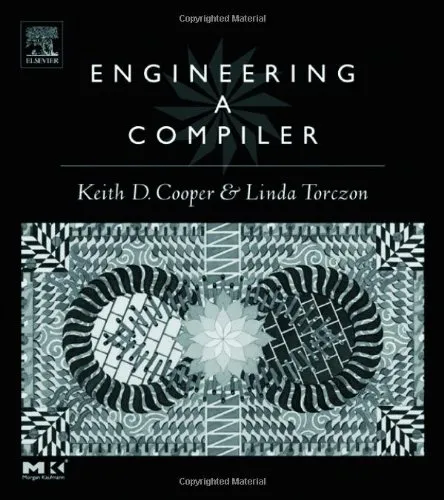
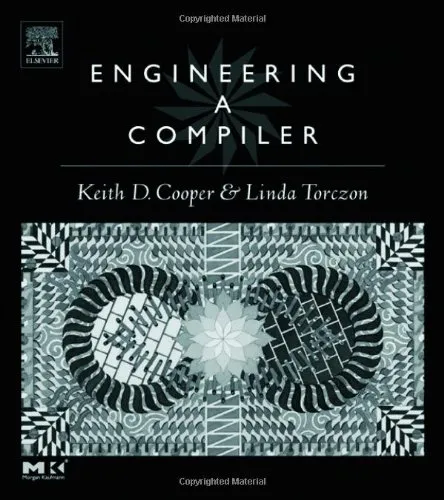
![Engineering a Compiler, Second Edition [2nd Ed] (Instructor's Edu Resource 1 of 2, Solution Manual) (Solutions)](https://s3.refhub.ir/images/thumb/Engineering_a_Compiler__Second_Edition__2nd_E_2258.webp)
